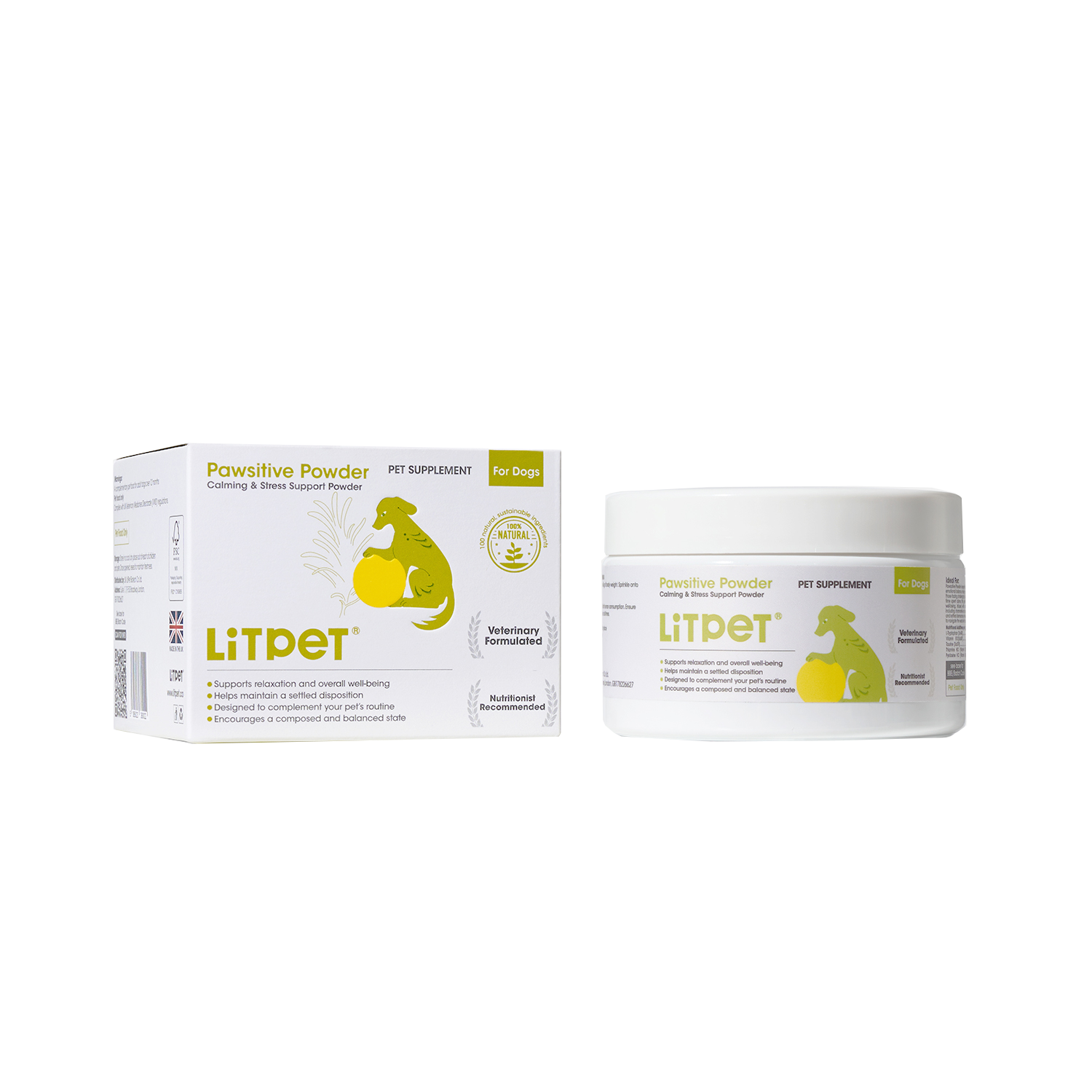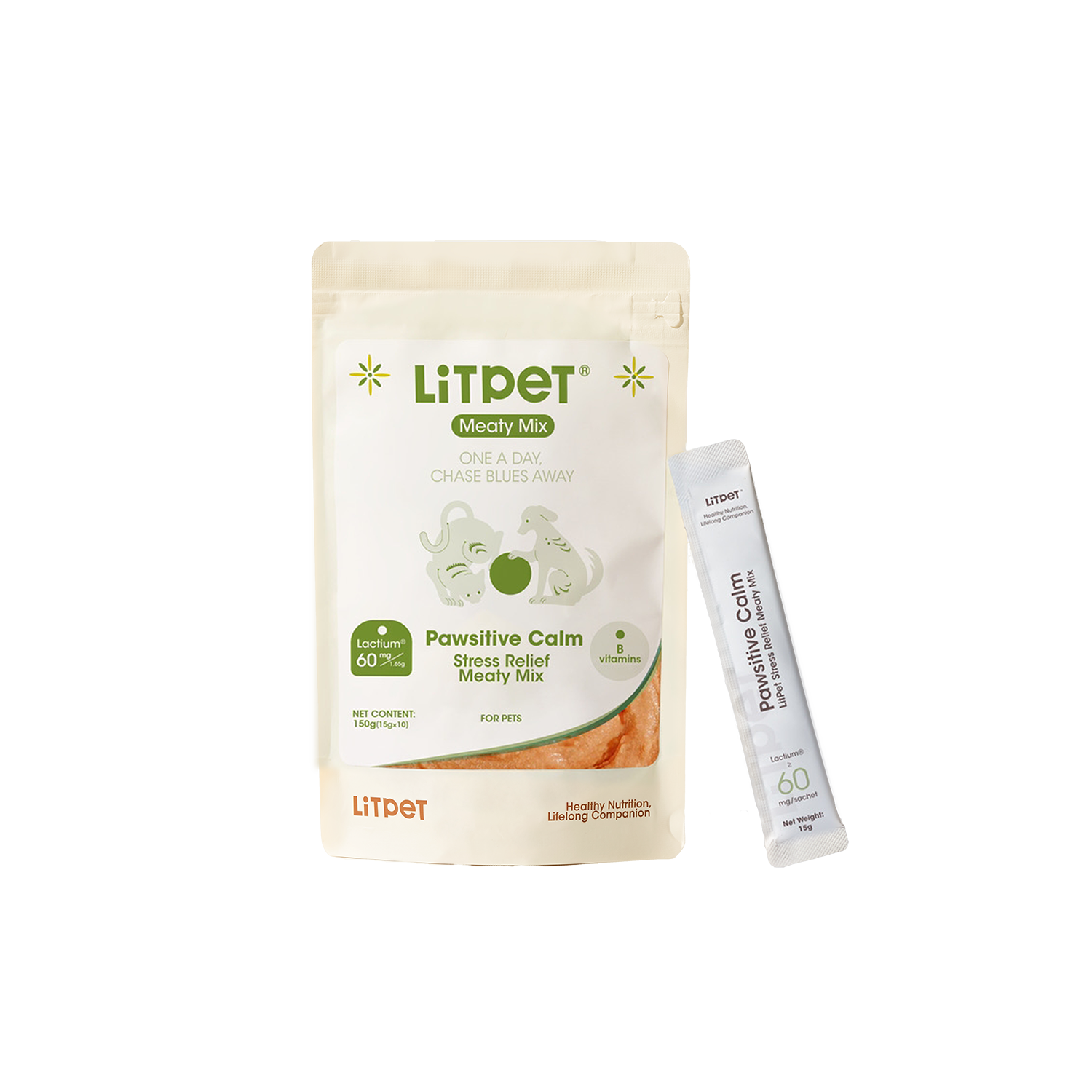Separation anxiety in dogs happens when a pet becomes overly distressed whenever it is left alone or separated from its owner. Unlike mild stress, this condition is more serious and can affect both your dog’s well-being and your home environment. Dogs with separation anxiety often display behaviours that go beyond simple boredom, making it one of the most common behavioural issues owners look to solve with calming supplements, training, or anti-anxiety relief.
Common signs and behaviours
The most recognizable dog anxiety symptoms include:
-
Excessive barking, whining, or howling when left alone
-
Destructive behaviour such as chewing furniture, doors, or crates
-
Attempts to escape or scratch at windows and doors
-
House soiling, even if the dog is normally house-trained
-
Pacing, drooling, or shaking when you prepare to leave
If you notice several of these behaviours consistently, it’s likely more than just restlessness - it may be separation anxiety.
Causes Of Separation Anxiety In Dogs
Separation anxiety in dogs doesn’t happen without reason. In most cases, a mix of environment, genetics, and life experiences can make a dog more prone to anxious behaviour. Understanding the root causes is the first step toward finding the right anti-anxiety relief and calming solutions for your dog.
Environmental triggers
Some dogs develop separation anxiety because of the environment they live in:
-
Lack of stimulation – Dogs left alone without toys, exercise, or interaction often develop destructive habits that grow into anxiety.
-
No safe space – Dogs may feel more vulnerable when you leave without a calm, secure spot to retreat to.
-
Unpredictable schedules – Coming and going at irregular times can confuse and stress dogs who thrive on routine.
Providing consistency, exercise, and calming aids (like supplements or diffusers) can reduce these environmental stressors.
Life changes (moving, new family member, routine changes)
Major shifts in a dog’s daily life can trigger separation anxiety, even in dogs that were once confident:
-
Moving house – New surroundings can be disorienting and stressful.
-
New family member – The arrival of a baby, partner, or even another pet can change the dynamic and trigger insecurity.
-
Routine changes – A change in your work schedule or being home less often (for example, after remote work ends) can leave dogs unsettled.
During these times, dogs may need extra reassurance, patience, and sometimes calming products to help them adjust smoothly.
Best Anti Anxiety Relief Supplement For Dogs
Here are some LitPet products that are tailored to help with dog anxiety, stress, and separation nervousness - and how they offer calming support:

Pawsitive Powder – Calming & Stress Relief Support
Helps dogs stay calm in stressful situations, supports emotional balance, separation anxiety, travel, and new environments - but does not sedate.
Key ingredients include: Lactium® (hydrolyzed casein), Taurine, Tryptophan, DHA/algae oil, Chamomile, Valerian Root, Rhodiola rosea, B vitamin
Buy Now
Pawsitive Calm Meaty Mix Paste for Cats & Dogs
Perfect for vet visits, grooming, travel, or everyday reassurance, each single-serve stick is packed with premium ingredients proven to promote relaxation without sedation.
Supports Relaxation – Hydrolyzed Casein (Lactium®) and Valerian Root Extract help settle restless energy, promoting a sense of calm.
Buy NowFrequently Asked Questions About Dog’s Separation Anxiety
Bored dogs may chew or bark occasionally, but separation anxiety causes intense, ongoing distress that starts as soon as you prepare to leave and continues until you return.
Highly social breeds such as Labradors, Border Collies, German Shepherds, and toy breeds like Chihuahuas and Cavaliers are more prone due to their strong attachment to people.
Calming supplements with ingredients like valerian root, chamomile, taurine, and omega 3s can help. Products such as LitPet’s Pawsitive Powder or Pawsitive Calm Capsules are designed to support relaxation without sedation.
Every dog is different, but with consistent use of calming supplements and training, many owners notice improvements within 4–8 weeks.
Yes. Puppies can form strong attachments early, and sudden changes (like leaving them alone too soon or moving to a new home) may trigger anxiety behaviours.
In mild to moderate cases, natural remedies and behavioural training are usually enough. For severe cases, your vet may recommend prescription options alongside supplements and training.

